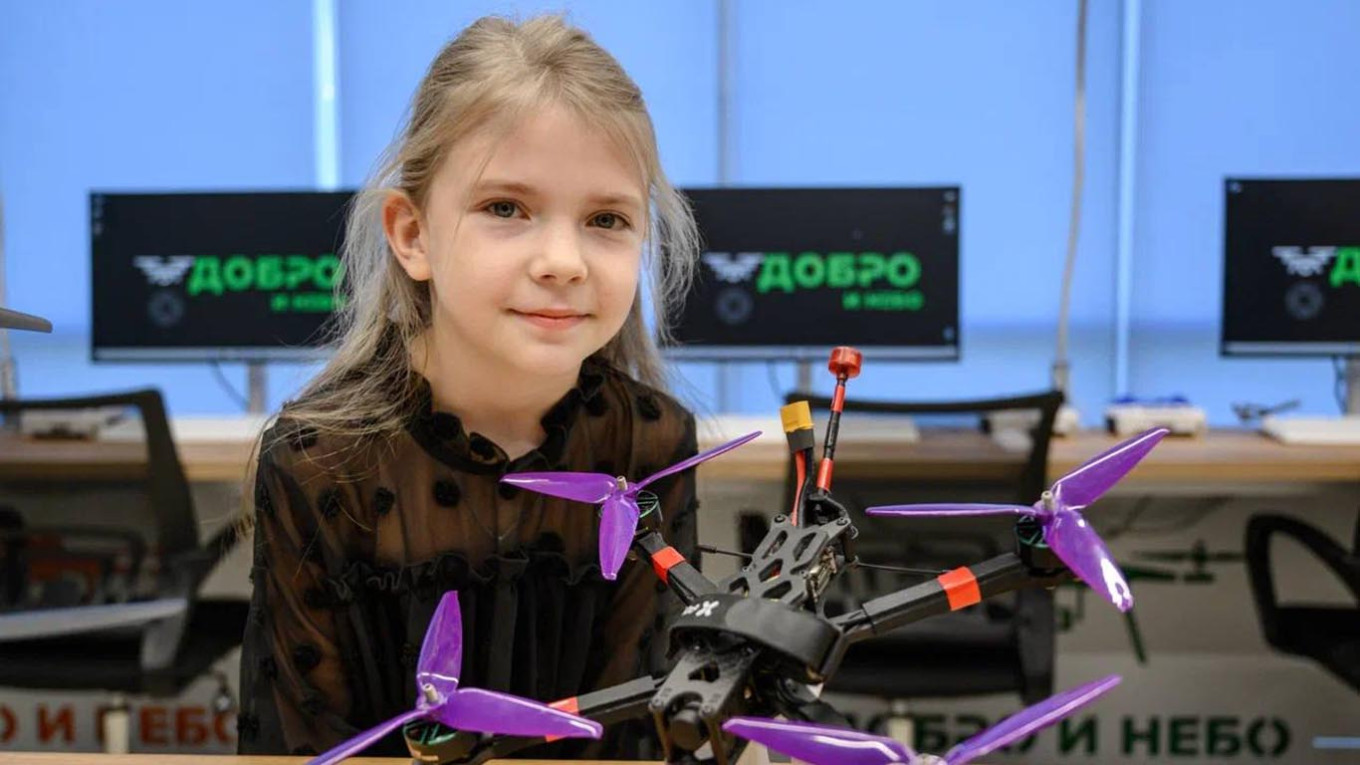Authorities in Krasnodar, a city in southern Russia, have announced the establishment of what they claim to be the nation’s first school focused on teaching children how to assemble and operate drones.
The local charity, Dobro i Delo (“Kindness and Action”), inaugurated the school named Dobro i Nebo (“Kindness and Sky”) last Friday, with funding support from a grant provided by the regional governor.
The program is aimed at local students in grades 7 through 11, who will be chosen based on their performance in tests assessing their fine motor skills and technical abilities. The duration of the course is expected to be around 8 to 9 months, combining theoretical lessons with simulator training and actual drone flights, alongside sessions in 3D printing and programming.
The first sessions are planned to commence in roughly a month.
During the opening ceremony, Krasnodar’s Mayor Yevgeny Naumov highlighted the initiative as “highly relevant” considering the growing demand for drones in both civilian applications and military contexts.
He also mentioned that the school’s instructors would include qualified trainers as well as veterans who have participated in Russia’s conflict in Ukraine.
“As of today, drones are prevalent in various fields such as construction, agriculture, and of course, the military. I genuinely hope for peace to come swiftly, enabling the skills the children gain here to serve them well during peaceful times,” Naumov expressed on Telegram.
Anna Potynga, the head of Dobro i Delo, dismissed claims that the new drone school could lead to the militarization of teenagers, arguing that the skills learned would be applicable in areas like “film, surveying, industry, and deliveries.”
“Should the Motherland need them, they’ll be equipped. However, we aim for them to utilize this knowledge in civilian sectors first,” Potynga explained to the news outlet Podyom.
She further noted that interest in drone training among high school students has far exceeded the initial target of enrolling 80 participants.
The charity shared a celebratory video on Instagram showcasing the ribbon-cutting ceremony and expressed gratitude towards volunteers and supporters who contributed to the school’s launch.

